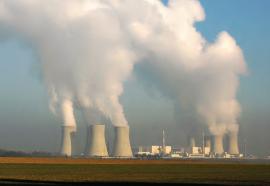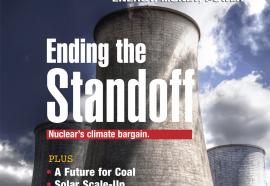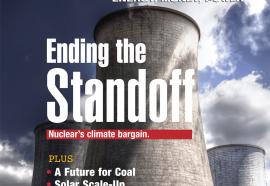Nuclear Standoff - Nuclear Breach
Federal failure to fulfill spent-fuel obligations creates expensive risks.
For more than 50 years, the federal government has failed to manage spent nuclear fuel (SNF) and high-level radioactive waste (HLW), imposing the burdens for this critical function on the private sector. Nuclear plant operators incurred upwards of several hundred million dollars per reactor in uncompensated expense and risk premiums, and potentially face decades of additional costs and risks coping with SNF and HLW.











